Running an Amazon FBA or FBM business in 2025 without automation is basically working two full-time jobs.
Amazon has 9.7 million sellers total, with about 1.9 million active sellers worldwide, and independent sellers now generate over 60 percent of all sales on the platform. The competition is massive, the margins are tight, and the truth is simple:
If you want to scale beyond a handful of SKUs, automation is no longer optional – it is the only way to save 10 to 30 hours per week and keep your listings, inventory, pricing, shipping, reviews, and ads under control.
Around 75 percent of Amazon sellers now use automation tools, and 87 percent of FBA sellers report turning a profit, which shows just how much efficiency matters. The right 8 – 10 tools can replace dozens of spreadsheets, manual checks, and late-night tasks with simple, repeatable workflows.
1. Helium 10 – The All-Purpose Brain of FBA Research and Listing Optimization
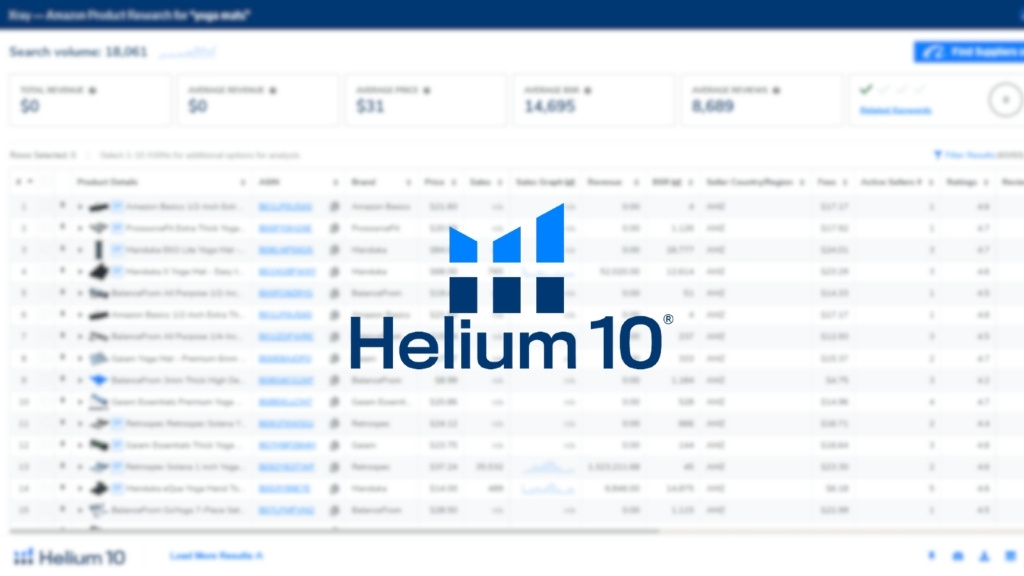
Helium 10 remains the most widely adopted intelligence platform for Amazon sellers, and it is used by well over two million people across the world.
What makes it so valuable is that it eliminates the daily manual work most sellers end up doing in separate tabs: checking keyword rankings, analyzing competitors, monitoring hijackers, inspecting BSR history, and tracking market trends.
Inside Helium 10, all these tasks run automatically in the background, giving sellers a single dashboard for everything they need to know.
Instead of manually refreshing pages to see if your competitor lowered their price or if your keyword ranking slipped, the system sends alerts in real time.
For new products, Helium 10 automates demand estimation, seasonality detection, keyword discovery, and listing optimization.
For established products, it continuously monitors what is happening in your niche and tells you when something changes, so you never walk into an unexpected drop.
| Feature | What It Automates | Why It Matters |
| Market Tracker | Competitor shifts & market share | Keeps you informed without manually checking listings |
| Keywords & Ranking | Daily ranking movements | Protects your organic visibility |
| Listing Alerts | Hijackers, suppressions, review changes | Prevents sudden listing failures |
| Trend Analysis | Price, BSR, and demand history | Reduces risk in product selection |
Helium 10 is essentially the intelligence layer that powers every strategic decision an Amazon seller makes.
2. InventoryLab – Streamlined FBA Prep, Labeling, and Shipment Creation
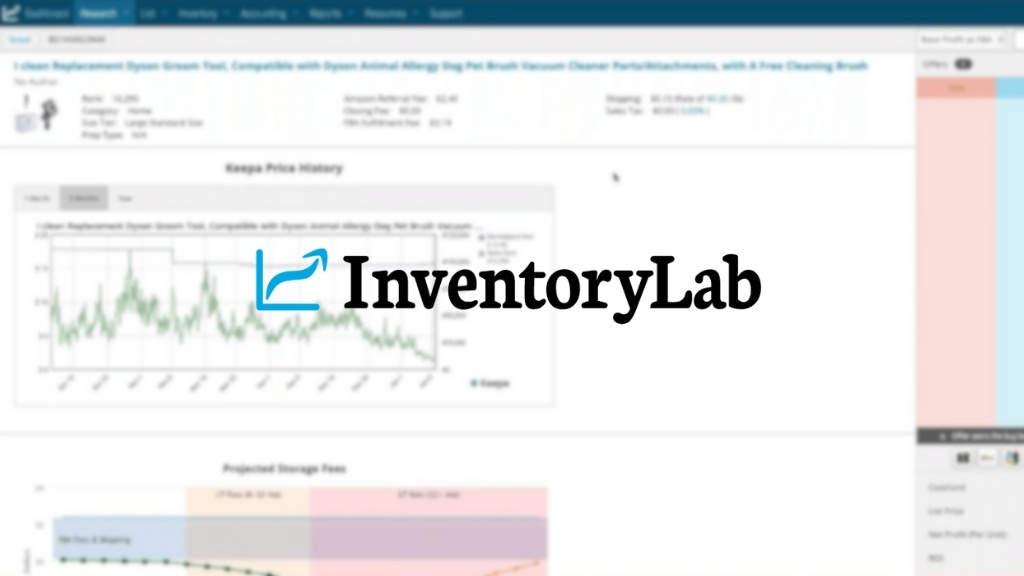
InventoryLab is designed for one purpose: to make FBA preparation and shipment creation faster, cleaner, and far more organized. Every seller who has done FBA manually knows how chaotic the workflow becomes – Excel sheets, label printers, box content spreadsheets, shipment plans, and last-minute mistakes.
InventoryLab places all of this into one unified pipeline.
Creating an FBA batch becomes a smooth sequence: you scan products, enter quantities, print labels, assign box contents, and submit the shipment. What normally takes hours becomes a predictable, almost assembly-line process.
Because the software tracks COGS and profit data at the same time, you always know which SKUs are performing well as you prepare shipments.
| Step | What Happens | Time Saved |
| Batch Creation | Add SKUs and quantities in one session | Eliminates fragmented spreadsheets |
| Label Printing | Auto-formatted FNSKU labels | Cuts label errors and reprints |
| Box Content | Assign items directly inside the tool | Removes manual box spreadsheets |
| Shipment Submission | Sends data to Amazon instantly | Avoids re-entering data in Seller Central |
This tool becomes even more valuable during Q4 when shipment frequency doubles and mistakes become expensive.
3. SoStocked – Demand Forecasting and Inventory Planning for FBA, FBM, and 3PLs
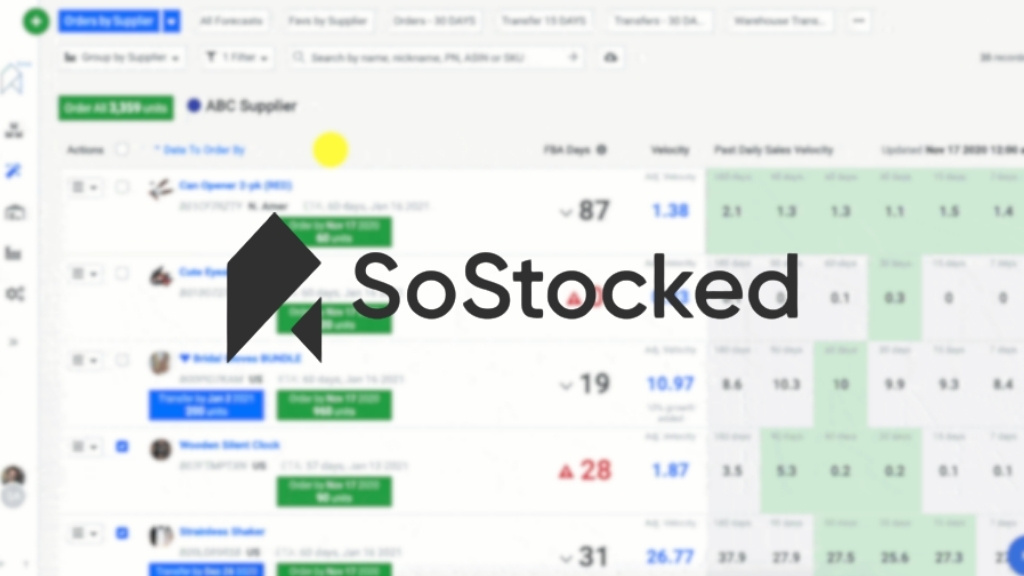
SoStocked is built for sellers who recognize that inventory forecasting is the beating heart of an Amazon business. Stockouts kill your keyword rankings, and overstock locks your capital. SoStocked automates this entire process by analyzing sales velocity, seasonality, lead times, warehouse transfers, safety stock levels, and promotional spikes.
This is also where partnering with a dependable third-party prep service becomes part of the overall automation stack. Many sellers who work with U.S.-based warehouses connect their forecasting tools directly with their prep center dashboards to keep inbound FBA shipments flowing on schedule.
A commonly used option among small and mid-sized sellers is the Dollan Amazon Prep Center, which helps streamline product intake, labeling, bundling, and FBA-ready shipment creation.
When forecasting systems such as SoStocked predict incoming demand, prep centers handle the physical side of that workflow, preventing delays between purchase orders and Amazon receiving.
| Component | Automated Function | Effect on Your Business |
| Forecasting | Predicts future demand using clean data | Prevents stockouts and rank loss |
| PO Management | Auto-scheduled purchase orders | Avoids late reorders and emergency air shipments |
| Warehouse Sync | Connects FBA, 3PL, and FBM | Eliminates overselling or dual stockouts |
| Seasonality Modeling | Adjusts forecasts month by month | Gives accurate order timing |
For sellers managing more than 15 – 20 SKUs, SoStocked becomes one of the most critical automations in the entire stack.
4. Sellerboard – Real-Time Profit Analytics and Automated Review Requests
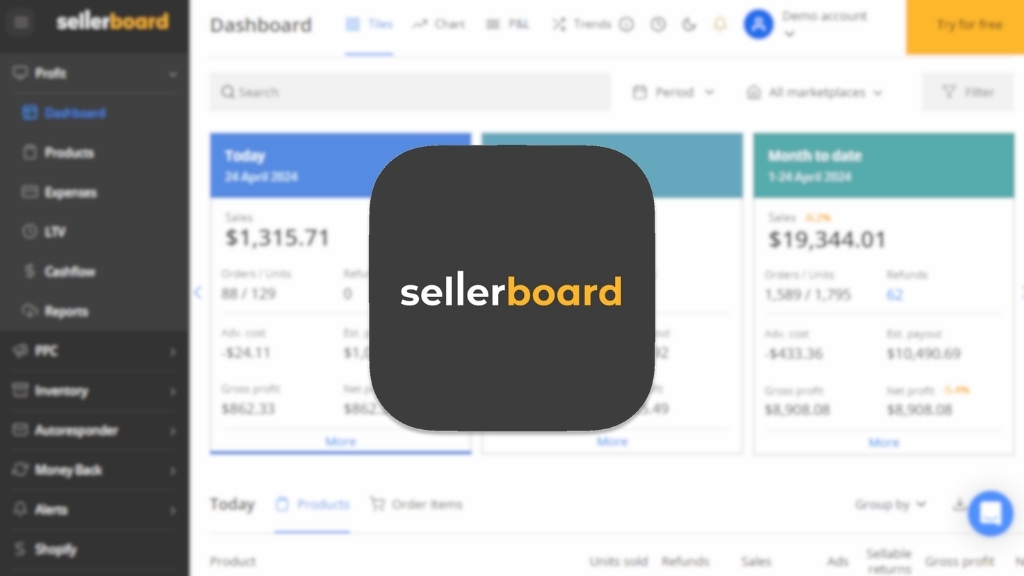
Sellerboard is the financial truth-teller of the Amazon ecosystem. Instead of manually calculating revenue, fees, PPC cost, refunds, and storage expenses, Sellerboard pulls everything directly from Amazon and calculates your exact net profit in real time.
Many sellers only realize they are losing money on specific SKUs after connecting Sellerboard.
It also simplifies operational tasks. Automated review request emails run in the background, ensuring every order receives compliant follow-ups. The reimbursement tracking system identifies lost, damaged, or mischarged inventory so you can claim money Amazon owes you.
Combined with inventory alerts, Sellerboard becomes the daily command center that sellers check every morning.
| Area | What It Automates | Impact |
| Profit Dashboard | Real-time net profit & cost breakdown | Gives financial clarity |
| Review Requests | Auto-sent to all customers | Boosts review count |
| Reimbursements | Detects FBA losses/refunds | Recovers missing money |
| Inventory Alerts | Identifies low stock | Prevents stockouts |
Having accurate numbers allows sellers to make decisions based on reality, not assumptions.
5. ShipStation – High-Volume Shipping Automation for FBM and Multi-Channel Sellers
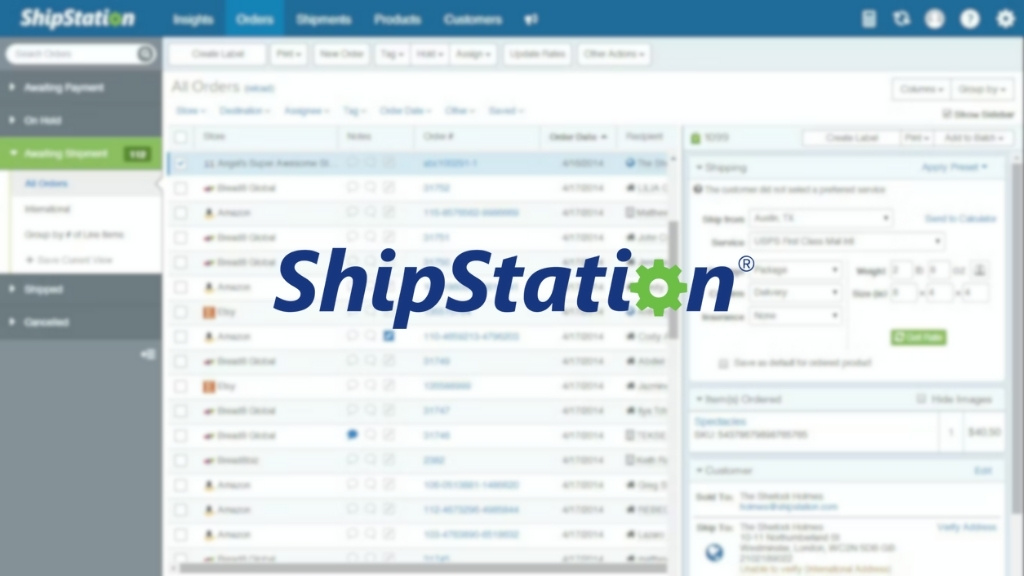
ShipStation is built for sellers fulfilling orders themselves or through multiple channels. When you operate FBM, speed becomes everything: labels, packing slips, routing rules, and carrier selection.
ShipStation pulls all your orders from Amazon, Shopify, eBay, Etsy, and other platforms into one dashboard and lets you automate the entire outbound workflow.
As soon as an order arrives, ShipStation can automatically assign it to the correct warehouse, determine the right shipping service, print labels in bulk, and upload tracking numbers back to Amazon without you touching anything.
For sellers handling hundreds of orders per day, this can reduce operational time by 60 – 90 percent.
| Function | Automation Benefit | Efficiency Gain |
| Order Importing | Consolidates all channels | Removes multi-platform checking |
| Label Generation | Bulk label printing | Handles hundreds of labels quickly |
| Carrier Rules | Auto-selects the cheapest/best option | Cuts shipping costs |
| Tracking Sync | Sends tracking to Amazon automatically | Avoids late shipment penalties |
If your business handles even moderate FBM volume, ShipStation is a time-saving powerhouse.
6. FeedbackWhiz – Automated Review and Feedback Management
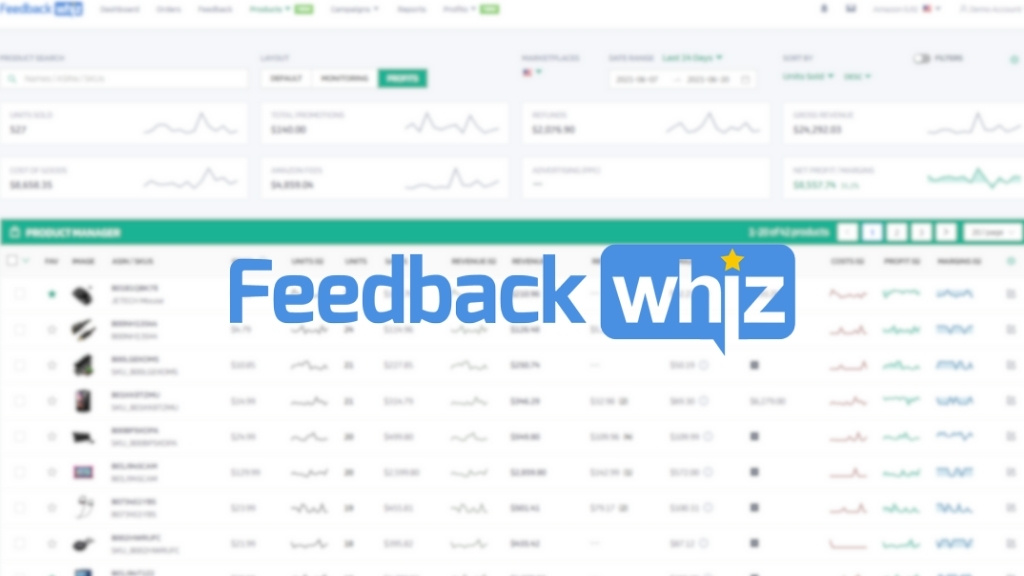
FeedbackWhiz is one of the most efficient ways to build review volume without manually messaging customers. It sends automated and fully Amazon-compliant review request emails based on order events such as delivery, shipment, or a preset number of days after purchase.
This consistent follow-up helps sellers generate more reviews without ever touching the messaging interface.
It also sends immediate alerts for negative feedback or critical product reviews so you can respond quickly and protect your rating. With review volume being one of the core ranking signals on Amazon, automating this process ensures long-term competitive advantage.
| Area | Automated Element | Benefit |
| Review Requests | Delivery-based email triggers | Builds consistent review flow |
| Negative Feedback Alerts | Instant notifications | Allows fast customer resolution |
| Email Customization | Controlled via templates | Maintains brand voice |
| Performance Tracking | Email open & click data | Helps adjust messaging strategy |
FeedbackWhiz removes the repetitive communication workload that does not scale once your sales volume increases.
7. Teikametrics – AI-Driven PPC Optimization
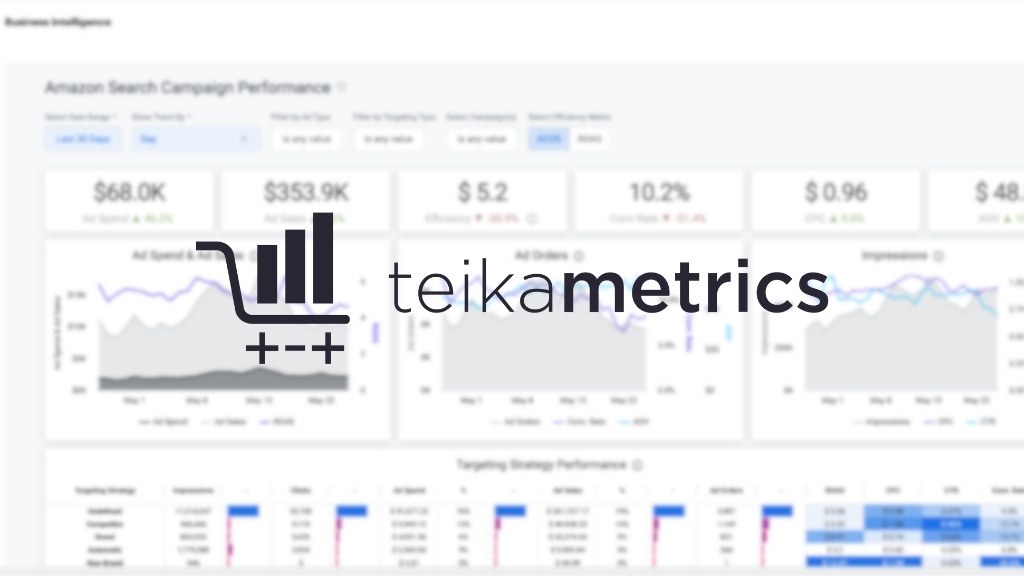
Teikametrics focuses entirely on Amazon advertising, using machine learning to optimize bids, budgets, and keywords. The tool ingests campaign data, analyzes conversion performance, and automatically adjusts bids throughout the day based on your desired profitability targets.
It identifies winning and losing keywords, adds new opportunities, applies negative targeting, and prevents your budget from being exhausted too early.
For brands spending more than a few thousand dollars monthly on Amazon ads, Teikametrics often becomes the biggest time saver because PPC is normally the most complex task to manage manually.
| PPC Function | How It Automates | Benefit |
| Bid Adjustments | Real-time bid increases/decreases | Improves ACoS stability |
| Keyword Expansion | Automatically finds new keywords | Grows campaign reach |
| Negative Keywords | Detects poor-performing terms | Reduces wasted ad spend |
| Budget Pacing | Distributes spending evenly | Avoids early-month burnout |
This tool acts as a full PPC manager working 24/7 without the cost of a human analyst.
8. Amazon Automate Pricing – Free Built-In Repricing Engine
Automate Pricing is Amazon’s own repricing tool, built directly into Seller Central. While simpler than some third-party repricers, it is fast, reliable, and free.
As your competitors change their prices, the system automatically adjusts your offer based on clear rules you configure.
This is especially important in Buy Box-driven categories where even a small delay in repricing can cause lost sales. Setting minimum and maximum prices ensures that you stay profitable while still competing effectively.
| Rule Type | How It Works | Use Case |
| Stay Below Buy Box | Matches or slightly undercuts | Competitive categories |
| Price Match | Aligns with the lowest offer | Stable competition |
| Minimum Price Guard | Never goes below your floor | Protects margin |
| Maximum Price Ceiling | Prevents overpricing | Keeps customer trust |
For many sellers, this simple tool removes daily price monitoring entirely.
9. Zapier – Workflow Integration Between Amazon and Every Other System
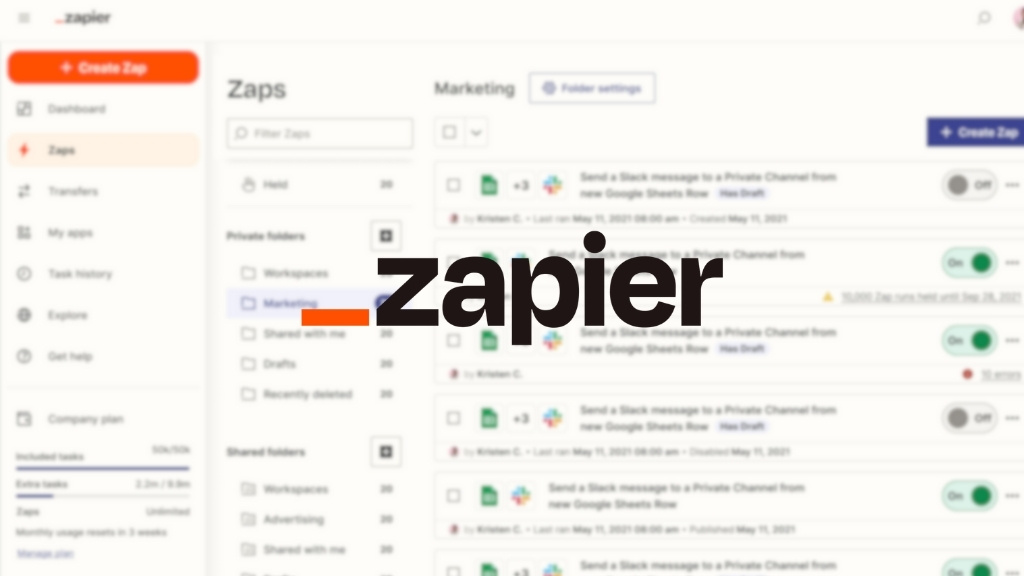
Zapier is not an Amazon-exclusive tool – it is the automation bridge between Amazon and everything else you use: Google Sheets, Slack, CRMs, 3PL systems, email platforms, and more. It works through “trigger → action” logic, removing repetitive tasks from your team’s workflow.
For example, when a new Amazon order arrives, Zapier can automatically log it into a Google Sheet, send instructions to the warehouse, notify your team in Slack, and even update project management boards.
These micro-automations add up quickly, eliminating most of the small manual tasks that slow down operations.
| Trigger | Automated Action | Benefit |
| New Amazon Order | Add to Google Sheet | Live order tracking |
| Order Shipped | Notify the Slack channel | Clear internal communication |
| Return Created | Alert warehouse manager | Quick reverse logistics |
| Inventory Low | Send email reminder | Prevents accidental stockouts |
Zapier becomes essential when your business uses multiple software systems that need to talk to each other.
10. A2X – Automated Accounting and Settlement Reconciliation
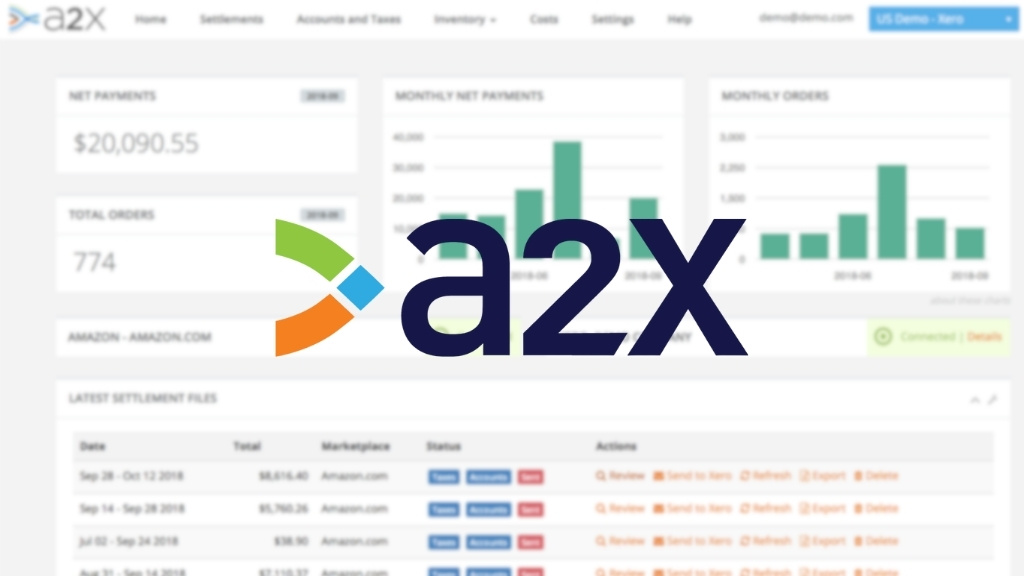
A2X handles one of the most painful parts of Amazon selling: understanding Amazon settlement reports. These reports contain dozens of fee types and adjustments that are almost impossible to reconcile manually.
A2X organizes them, groups them correctly, and sends clean summaries into QuickBooks, Xero, or NetSuite.
It breaks down Amazon payouts into sales, refunds, fees, taxes, promotions, and reserves, ensuring your accounting records actually match your bank deposits.
This eliminates the hours of bookkeeping work each pay cycle normally requires.
| Data Type | How A2X Handles It | Benefit |
| Sales & Refunds | Groups by settlement period | Clean financial reporting |
| Fees & Commissions | Itemized automatically | No manual calculations |
| Taxes | Categorized correctly | Simplifies compliance |
| Multi-Country Sellers | Consolidates currencies | Accurate global accounting |
For sellers scaling toward a more professional operation, A2X becomes non-negotiable.
Related Posts:
- 10 Simple Investments That Could Help You Build…
- 8 Essential Tools Every Business Needs for Hosting…
- How Neural Networks Help NPCs Mimic Human Decision Making
- Daylight Saving Time - Why Some States Follow It and…
- Personalization Features That Make Real-Time…
- Katt Williams Net Worth in 2024 - Top 7 Investments…
















